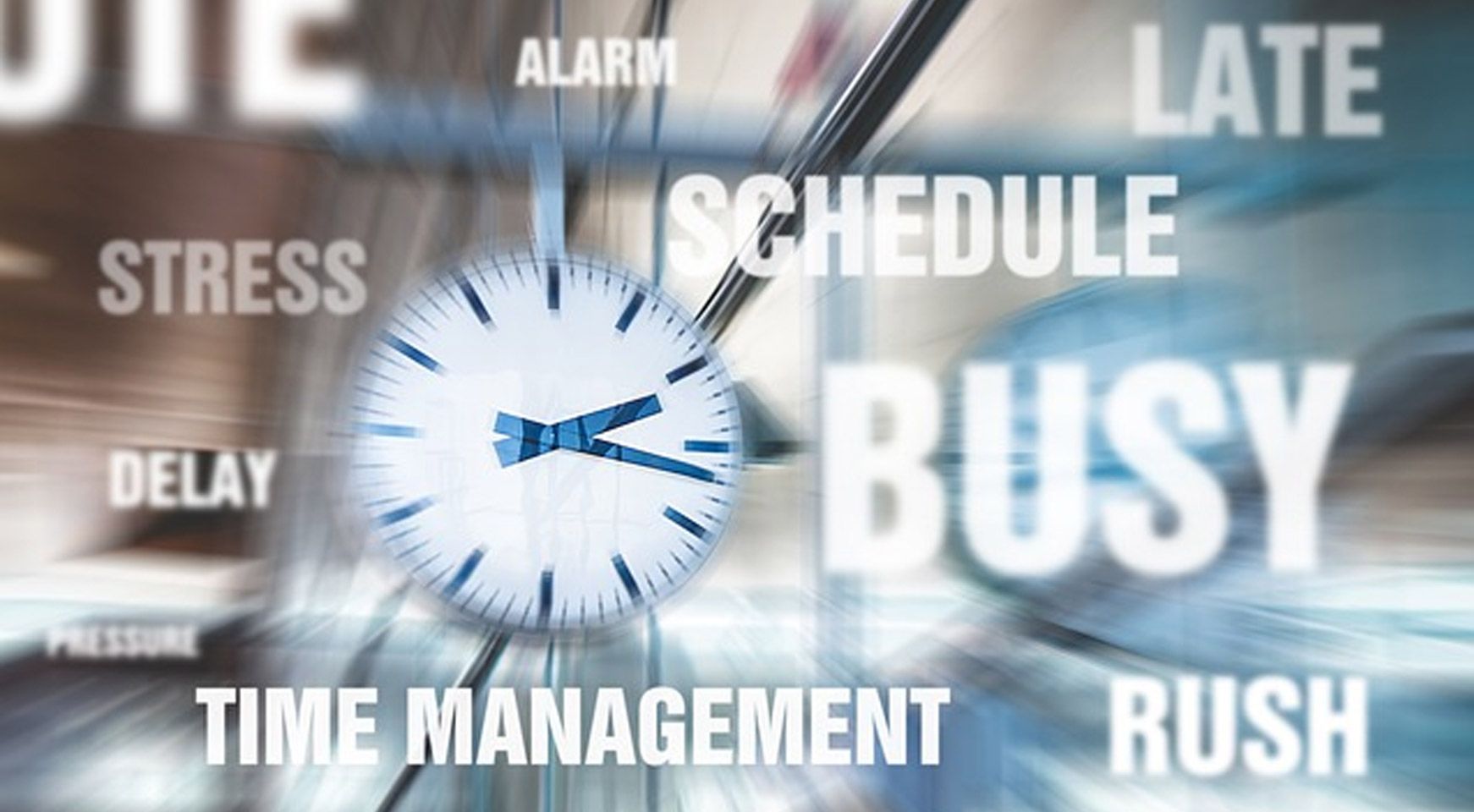Time management at work and how to improve it

Run your day, or your day runs you
Time is our most precious commodity. We are guilty of complaining that we don’t have enough of it, yet much of the time we are also guilty of not using the time that we DO have effectively. Efficient time management at work is crucial whatever industry you are in. It is crucial to both performance and productivity because without it deadlines may not be met, the quality of output may be poor, and you (or your staff) will not be achieving their potential. Ultimately, poor time management is detrimental to business, and it is detrimental to individuals, both professionally and personally.
Plan your work – then work your plan
The first step to managing time effectively is to plan and get organised. Make lists of tasks, use an organiser to plan a schedule and use a calendar for all tasks and events. Setting reminders and alerts will help you to stay on track. Don’t procrastinate – if it can be done tomorrow, then it can be done today. Tackling big tasks first, especially first thing in the morning, can set the momentum for the rest of the day or week.
It’s just a matter of priorities
Prioritise your tasks efficiently to focus on the most important and time-pressed tasks first. The last thing you want to do is spend time on things that are less important and then feel rushed, or worse have no time to do the things that are highly important. If you struggle to prioritise tasks, then ask yourself which category below best fits the task and then use this rule of thumb to evaluate the best use of your time:
- Important and urgent – Do immediately
- Important but not urgent – Decide when to do them.
- Urgent but not important –Delegate if possible.
- Not urgent and not important – Lowest priority
Avoid spending time on tasks of little importance or value, and most importantly don’t spend time on unimportant detail. Focus on results by finishing a task and moving on – avoid the temptation to re-visit a task, trusting in your ability to do a good job the first time around.
Distractions destroy actions
The ability to be able to multi-task isn’t as impressive a quality as you might think, and what you may well be doing is making more work for yourself. Don’t make a mess in the name of multi-tasking – finish one job and park everything else as much as you can before you allow yourself to be interrupted. Keeping mobile phones on silent and out of sight, using voicemail options where you can, staying away from social media and turning off email notifications are all techniques that will help you to stay on task. You could even allocate yourself a period of time to focus on a task and use a timer app or alarm to manage that time.
Manage external time wasters
Effective time management is more than just successfully managing your own time; it is about managing the situations that waste your time. If you are attending a meeting, know the purpose in advance and learn how to ‘cut off’ – don’t be afraid to cut meetings or meeting segments short in order to stay on track. Avoid small talk at work – keep meetings, discussions and telephone conversations focussed. Manage your email effectively and don’t allow it to become too overwhelming to handle. If you have unexpected visitors, don’t be afraid to turn them away with a polite request to make an appointment or speak to them standing up so that they know you are not going to give them more than a few minutes of your time.
Just say NO!
Saying “no” is vital to effective time management but it is not an easy thing for many people to do, and it is also not always easy to know WHEN to say it. Again it comes down to a matter of priorities – when trying to decide whether or not to say no, a wise choice would be to consider the potential consequences and missed benefits of saying no. Weighing up the situation in this way can help you to reach a decision that is the best use of your valuable time, and will then give you a valid reason for being able to say no. It is also important to convey the message that you can only consider taking something on if you are able to devote the time that the task deserves.
Practice good housekeeping
Make sure your workspace is de-cluttered and tidy because important things can get lost in a messy desk, and looking for things is a big waste of time. Whether you believe ‘a tidy desk is a tidy mind’ or ‘a messy desk is a sign of genius’ what IS true is that everyone needs to get rid of clutter at some point. The Japanese are well known for their working practices and customs, and their approach to being organised in the workplace makes good sense:
- Get everything in order
- Identify and label everything
- Keep everything clean,
- Practice the above each day
- Make the above your daily routine
Finally – give yourself a break!
It is impossible for anyone to focus and produce good quality work over long working hours without taking a break. It is important not to view breaks as ‘time wasted’ – they offer valuable downtime which helps you to re-focus. Time taken actually away from your desk is vital – go for a walk, make a tea or coffee, and make sure you take time to eat because thirst or hunger won’t help to produce high-quality work. Ultimately, not taking time to do something for yourself every day will leave you feeling unfulfilled and resentful which can then become barriers to effective productivity.

